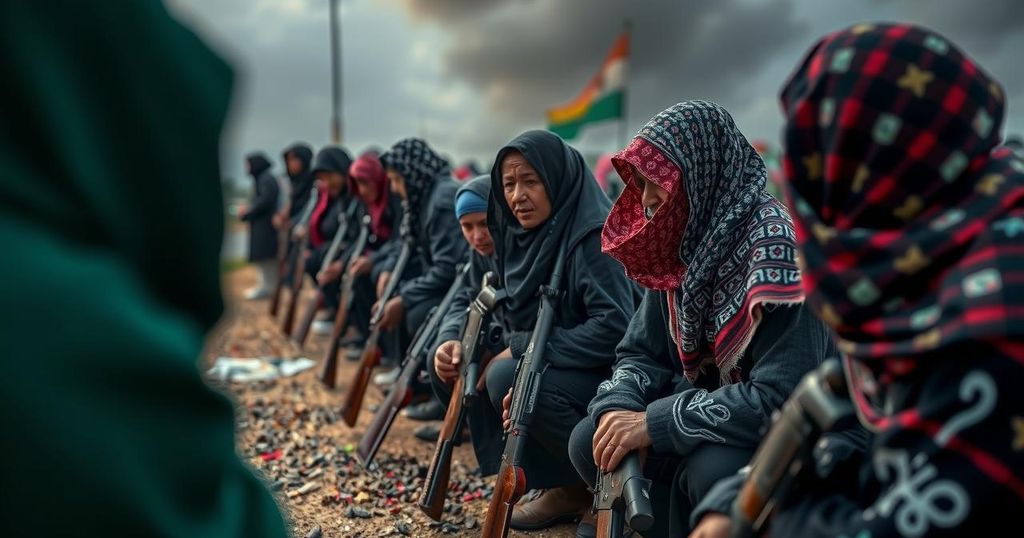The Kenyan government has confirmed the capture and repatriation of four Turkish refugees at Turkey’s request. Foreign Affairs PS Korir Sing’oei stated that Turkey pledged to treat the refugees with dignity. Amnesty International condemned the actions, citing violations of Kenyan and international refugee laws, and expressed concern for the refugees’ safety. The incident raises broader questions about refugee rights and protections in Kenya.
The Government of Kenya has confirmed the capture and repatriation of four Turkish refugees at the request of the Turkish government. Foreign Affairs Principal Secretary Korir Sing’oei made this announcement on Monday, stating that Ankara has assured that its nationals will be treated humanely. The individuals, Alparslan Taşçı, Mustafa Genç, Huseyin Yesilsa, and Öztürk Uzun, were transported out of Nairobi last Friday. Dr. Sing’Oei remarked that the refugees had been living in Kenya when the Ministry of Foreign and Diaspora Affairs responded to Turkey’s request. He emphasized that the Turkish authorities have provided commitments to uphold the dignity of the repatriated individuals, aligning with applicable national and international laws. He also highlighted the historical and strategic ties that exist between Kenya and Turkey as the rationale for complying with the request. Moreover, he assured that confidentiality regarding the repatriated individuals will be maintained and indicated that the Kenyan government will refrain from public discourse on this matter until a thorough inter-agency review is conducted. In contrast, Amnesty International condemned the actions of the Kenyan government as a violation of both Kenyan and international refugee laws. The organization noted that these acts of abduction illustrate the deteriorating safety conditions for refugees and asylum seekers in Kenya. Amnesty International warned that the refugees could face unlawful forceful return to Turkey, where they may encounter severe human rights violations, a situation that violates the principle of non-refoulement established in various legal frameworks including Kenyan law, the 1951 Refugee Convention, and the African Union’s Convention on Refugees. Yasin Yakut, a director at a local institution, expressed concern for the safety of the refugees, emphasizing their status as United Nations-recognized refugees currently working with various organizations in Kenya. This event has prompted reports of abduction to the Kileleshwa Police Station, raising serious questions about the treatment of refugees in the country.
The situation surrounding the repatriation of Turkish refugees from Kenya to Turkey highlights complex issues related to refugee protection and international relations. Kenya has historically welcomed refugees, hosting over 780,000 individuals seeking asylum. However, the recent abduction and forced repatriation of four individuals have incited global condemnation and raised alarms about the safety of refugees within the Kenyan jurisdiction. This scenario reflects broader concerns regarding the adherence to international refugee laws and the principle of non-refoulement, crucial standards that protect individuals from being returned to countries where they are likely to face harm. This incident also underscores the delicate balance between national obligations and international human rights commitments that countries must navigate in the context of their diplomatic relations.
The capture and repatriation of four Turkish refugees by the Kenyan government has led to a significant outcry from human rights organizations, particularly Amnesty International, which argues that this action infringes upon established refugee protections under both Kenyan and international law. While the Kenyan government has assured the dignified treatment of the repatriated individuals, the incident raises serious concerns regarding the safety and rights of refugees in Kenya. The ongoing scrutiny highlights the need for continued advocacy for refugee rights and the protection of vulnerable populations. As the situation unfolds, it remains imperative that both the Kenyan government and international bodies uphold their commitments to protecting the rights and welfare of all refugees.
Original Source: nation.africa






